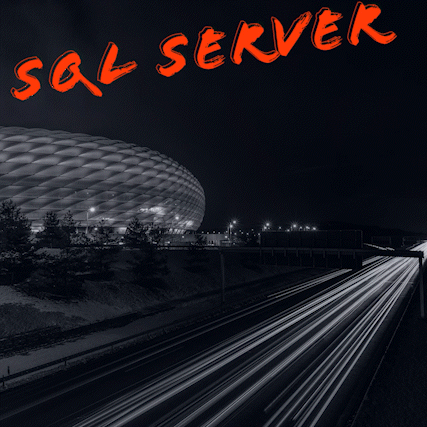Wait statistics, in the context of SQL Server, refer to the amount of time that a query spends waiting to access data in the database. When a client application requests data from the database, the request is placed in a queue and the client application must wait for its turn to access the data. The time that the query spends waiting is called a "wait" and is tracked by SQL Server. This information can be used to identify potential performance bottlenecks and optimize the performance of the database. Wait statistics are commonly used by database administrators to diagnose and troubleshoot performance issues in SQL Server.
SQL Server uses wait types to provide insights into where delays might occur in its processes. The HADR_READ_ALL_NETWORKS wait type is specific to environments using Always On Availability Groups. It indicates that SQL Server is waiting for data to be received from all configured network paths between replicas. This wait type plays a crucial role in ensuring the synchronization of replicas in high availability and disaster recovery setups. Let’s dive into what this wait type means, when it occurs, and how you can manage it effectively.
What Is the HADR_READ_ALL_NETWORKS Wait Type?
The HADR_READ_ALL_NETWORKS wait type occurs when SQL Server’s Always On Availability Group is waiting to read data from all network connections configured between replicas. In an Availability Group, each replica communicates with the others to synchronize log records and ensure consistency. If one or more network paths are slow or delayed, this wait type may appear.
This wait type ensures that all required data from the network has been received before proceeding, maintaining data integrity and consistency between replicas.
When Does HADR_READ_ALL_NETWORKS Appear?
This wait type typically appears in the following scenarios:
- Log Synchronization – When the primary replica is waiting for secondary replicas to acknowledge log records.
- Network Congestion – When network traffic is high, causing delays in data transmission between replicas.
- Failover Operations – During failover events, replicas exchange critical data to coordinate roles and synchronization.
- High-Volume Transactions – Environments with a high transaction rate may generate significant log data, increasing network load.
Why HADR_READ_ALL_NETWORKS Waits Matter
While some HADR_READ_ALL_NETWORKS waits are normal in an Always On environment, excessive waits can indicate performance issues. These waits may result in delayed synchronization, increased log send queue sizes, or even impact the readiness of secondary replicas for failover. Common causes include:
- Slow Network Links – High latency or insufficient bandwidth between replicas can lead to delays in data transmission.
- Network Configuration Issues – Misconfigured network routes or endpoints can reduce efficiency and increase wait times.
- Replica Overload – Secondary replicas under heavy load may process network data more slowly, causing the primary to wait.
- Large Transactions – Significant amounts of log data generated by large transactions can increase network congestion.
How to Address HADR_READ_ALL_NETWORKS Waits
To reduce HADR_READ_ALL_NETWORKS waits and ensure optimal synchronization, consider the following strategies:
- Optimize Network Performance – Ensure dedicated, high-bandwidth, and low-latency network connections between replicas. Use tools to monitor and troubleshoot network performance regularly.
- Balance Replica Workloads – Avoid overloading secondary replicas with excessive read workloads. Distribute reporting or analytics tasks across multiple replicas if possible.
- Reduce Transaction Sizes – Break large transactions into smaller ones to reduce the amount of log data sent over the network at one time.
- Validate Network Configuration – Double-check Always On network settings, including endpoints and listener configurations, to ensure proper routing and connectivity.
- Upgrade Hardware – If network or replica resources are insufficient, consider upgrading to faster network links, better storage, or more CPU/memory capacity.
Monitoring HADR_READ_ALL_NETWORKS Waits
To monitor HADR_READ_ALL_NETWORKS waits, use SQL Server’s sys.dm_os_wait_stats to analyze wait statistics. Additionally, the Always On Dashboard and dynamic management views such as sys.dm_hadr_availability_replica_states provide insights into synchronization health and network performance. Regularly reviewing these metrics helps you identify trends and potential bottlenecks before they become critical issues.
Effective network management is essential for maintaining high availability in SQL Server. Stedman Solutions offers expert managed services to help you optimize SQL Server environments, troubleshoot performance issues, and resolve wait types like HADR_READ_ALL_NETWORKS. Our Database Health Monitor tool provides detailed analytics and monitoring capabilities, helping you stay on top of system health and performance. Contact us today to learn how we can support your SQL Server needs!

Find out more about our SQL Server Managed Services
Applies to
Related Waits
HADR_AG_MUTEXHADR_AR_CRITICAL_SECTION_ENTRY
HADR_AR_MANAGER_MUTEX
HADR_AR_UNLOAD_COMPLETED
HADR_ARCONTROLLER_NOTIFICATIONS_SUBSCRIBER_LIST
HADR_BACKUP_BULK_LOCK
HADR_BACKUP_QUEUE
HADR_CLUSAPI_CALL
HADR_COMPRESSED_CACHE_SYNC
HADR_CONNECTIVITY_INFO
HADR_DATABASE_FLOW_CONTROL
HADR_DATABASE_VERSIONING_STATE
HADR_DATABASE_WAIT_FOR_RESTART
HADR_DATABASE_WAIT_FOR_TRANSITION_TO_VERSIONING
HADR_DB_COMMAND
HADR_DB_OP_COMPLETION_SYNC
HADR_DB_OP_START_SYNC
HADR_DBR_SUBSCRIBER
HADR_DBR_SUBSCRIBER_FILTER_LIST
HADR_DBSEEDING
HADR_DBSEEDING_LIST
HADR_DBSTATECHANGE_SYNC
HADR_FABRIC_CALLBACK
HADR_FILESTREAM_BLOCK_FLUSH
HADR_FILESTREAM_FILE_CLOSE
HADR_FILESTREAM_FILE_REQUEST
HADR_FILESTREAM_IOMGR
HADR_FILESTREAM_MANAGER
HADR_GROUP_COMMIT
HADR_LOGCAPTURE_SYNC
HADR_LOGCAPTURE_WAIT
HADR_LOGPROGRESS_SYNC
HADR_NOTIFICATION_DEQUEUE
HADR_NOTIFICATION_WORKER_EXCLUSIVE_ACCESS
HADR_NOTIFICATION_WORKER_STARTUP_SYNC
HADR_NOTIFICATION_WORKER_TERMINATION_SYNC
HADR_PARTNER_SYNC
HADR_RECOVERY_WAIT_FOR_CONNECTION
HADR_RECOVERY_WAIT_FOR_UNDO
HADR_REPLICAINFO_SYNC
HADR_SYNC_COMMIT
HADR_SYNCHRONIZING_THROTTLE
HADR_TDS_LISTENER_SYNC
HADR_TDS_LISTENER_SYNC_PROCESSING
HADR_TIMER_TASK
HADR_TRANSPORT_DBRLIST
HADR_TRANSPORT_FLOW_CONTROL
HADR_TRANSPORT_SESSION
HADR_WORK_POOL
HADR_WORK_QUEUE
HADR_XRF_STACK_ACCESS
See Also
All Wait Types


